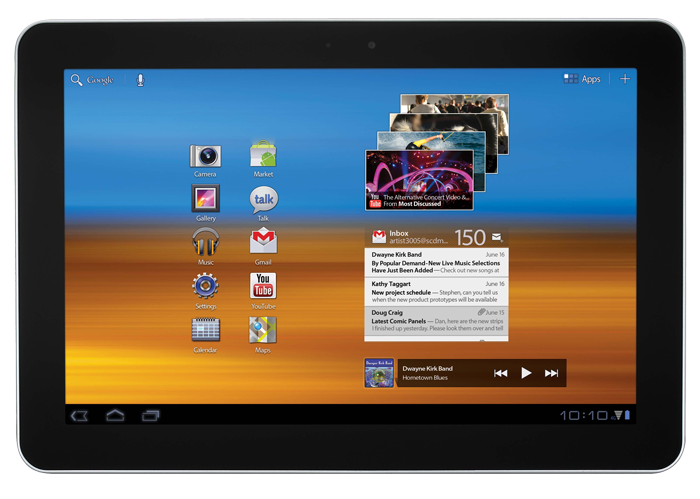Apple posts $2.6M bond to block sales of Samsung Galaxy Tab 10.1
Apple's posting of the bond means that the injunction has taken effect and Samsung must cease stateside sales of the Galaxy Tab 10.1, or the company could be sanctioned for contempt, according to Florian Mueller of FOSS Patents.
The $2.6 million bond posted by Apple is necessary to protect Samsung in the event that the Korean electronics maker appeals the injunction and succeeds. If the current injunction is found to have been improperly granted, Samsung could be awarded that money to compensate for any losses.
Apple was granted the injunction against the Galaxy Tab 10.1 on Tuesday by U.S. District Court Judge Lucy Koh. In her ruling, she said that Samsung "does not have a right to compete unfairly by flooding the market with infringing products."
In response to Koh's ruling, Samsung has already filed a motion to stay the injunction pending its own forthcoming appeal. As noted by Mueller, Samsung's motion to stay asserts that the company's appeal is likely to succeed, as Samsung feels the court "erred by issuing a preliminary injunction based on a stale and incomplete record."
The injunction comes a month before Apple and Samsung are set to square off in court, with their patent infringement lawsuits scheduled to go to trial in late July. Ahead of that trial, Apple has also succeeded in having portions of Samsung's expert reports excluded from the case.
In fact, Mueller said that Apple won that showdown with Samsung "by an extraordinarily wide margin," as the iPhone maker had many portions of Samsung's expert reports excluded and defeated most of Samsung's motions. However, Samsung's own motions against Apple's expert reports "were much less successful."
"Apple goes into this summer's trial with a fundamentally stronger case than Samsung," Mueller said. "That belief is mostly based on the strength of the asserted intellectual property rights and the fact that Samsung mostly relies on FRAND-pledged standard-essential patents. Both parties have great lawyers, but no lawyer can change the fact that Samsung is in a strategically weaker position here."
 AppleInsider Staff
AppleInsider Staff











 Malcolm Owen
Malcolm Owen
 Chip Loder
Chip Loder

 William Gallagher
William Gallagher
 Christine McKee
Christine McKee
 Michael Stroup
Michael Stroup
 William Gallagher and Mike Wuerthele
William Gallagher and Mike Wuerthele







